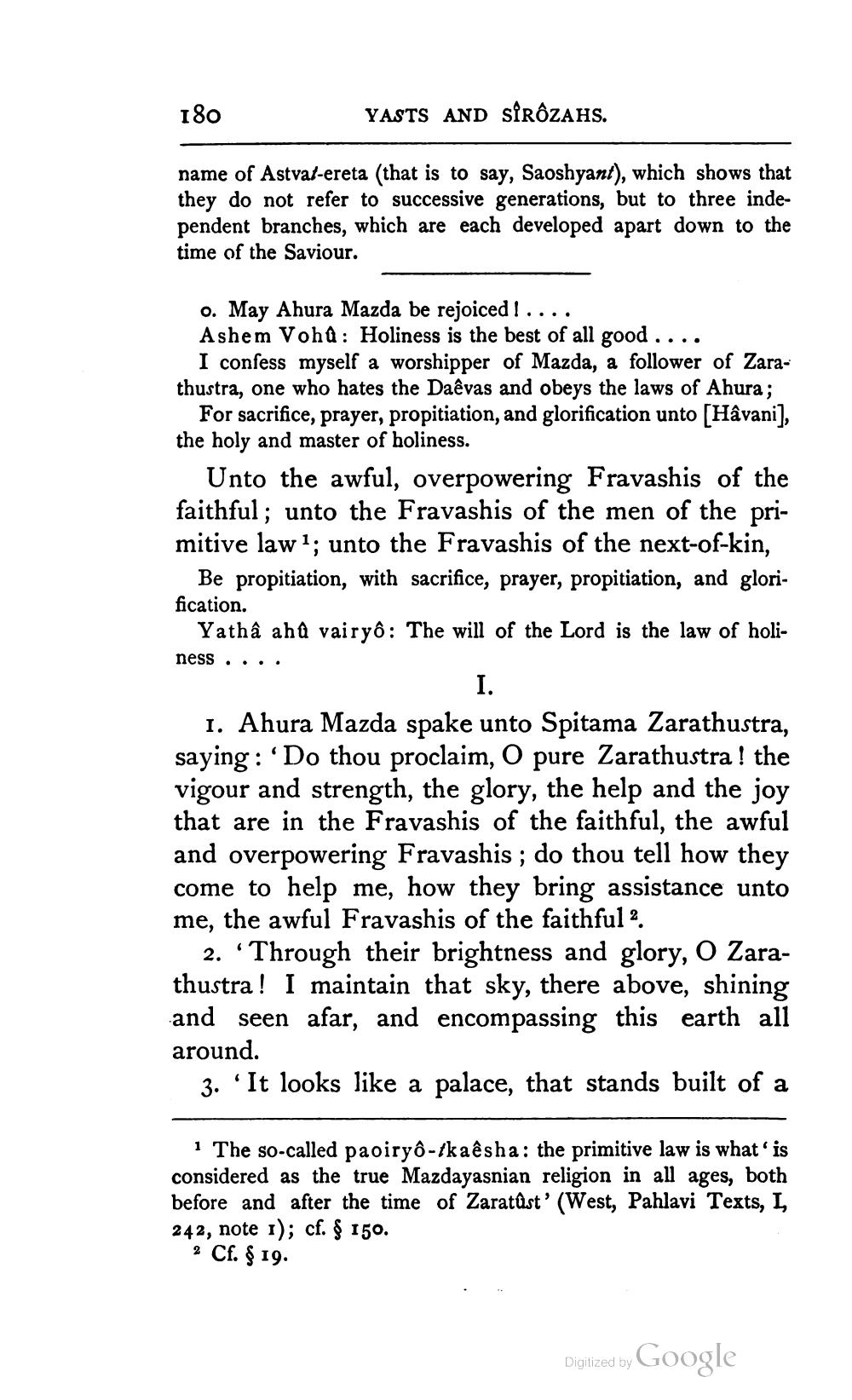________________
180
YASTS AND STRÔZAHS.
name of Astvat-ereta (that is to say, Saoshyant), which shows that they do not refer to successive generations, but to three independent branches, which are each developed apart down to the time of the Saviour.
o. May Ahura Mazda be rejoiced ..... Ashem Vohồ : Holiness is the best of all good ....
I confess myself a worshipper of Mazda, a follower of Zarathustra, one who hates the Daêvas and obeys the laws of Ahura:
For sacrifice, prayer, propitiation, and glorification unto [Hâvani), the holy and master of holiness.
Unto the awful, overpowering Fravashis of the faithful; unto the Fravashis of the men of the primitive law 1; unto the Fravashis of the next-of-kin,
Be propitiation, with sacrifice, prayer, propitiation, and glorification.
Yathâ ahû vairyô: The will of the Lord is the law of holiness....
1. Ahura Mazda spake unto Spitama Zarathustra, saying: 'Do thou proclaim, O pure Zarathustra ! the vigour and strength, the glory, the help and the joy that are in the Fravashis of the faithful, the awful and overpowering Fravashis; do thou tell how they come to help me, how they bring assistance unto me, the awful Fravashis of the faithful 2.
2. “Through their brightness and glory, O Zarathustra! I maintain that sky, there above, shining and seen afar, and encompassing this earth all around.
3. “It looks like a palace, that stands built of a
1 The so-called paoiryo-tkaêsha: the primitive law is what is considered as the true Mazdayasnian religion in all ages, both before and after the time of Zaratûst' (West, Pahlavi Texts, L 242, note 1); cf. $ 150.
2 Cf. § 19.
Digitized by Google




